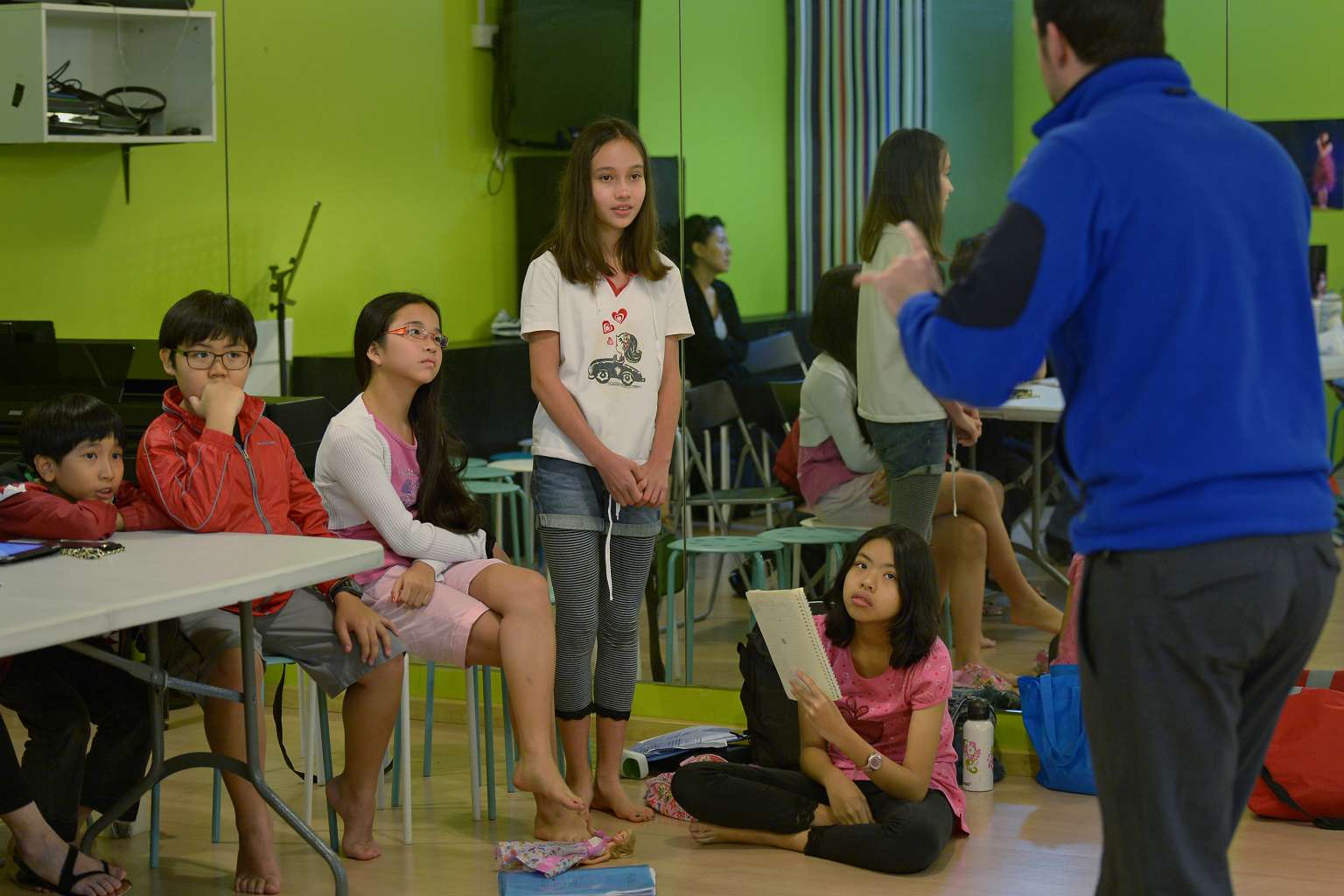Parliament: DSA scheme for pupils to enter Secondary 1 directly to be expanded
Sign up now: Get ST's newsletters delivered to your inbox

Children hoping to enter the School of the Arts (Sota) at a preparatory camp at the Kids Performing Academy of the Arts on June 6, 2014.
PHOTO: ST FILE
Calvin Yang
Follow topic:
SINGAPORE - More students whose talents and achievements lie beyond doing well in examinations will have a shot at getting into their desired secondary schools with the expansion of the Direct School Admission (DSA) scheme.
From next year, all secondary schools can reserve up to 20 per cent of their non Integrated Programme places for pupils entering via the DSA scheme. The non-Integrated Programme route prepares students to sit the N or O levels at the end of their secondary school education.
The scheme, which was introduced to recognise pupils' achievements in non-academic areas such as sports and the arts, grants Primary 6 pupils places in secondary schools before they sit the Primary School Leaving Examination (PSLE). Education Minister (Schools) Ng Chee Meng said in Parliament during the debate on the ministry's budget on Tuesday (March 7): "With this expansion, students can better access schools with suitable programmes via DSA, to nurture their strengths, talents and interests."
Schools will also refine their DSA selection process.
By 2018, pupils applying for DSA will not need to sit general academic ability tests. These tests, said Mr Ng, "inadvertently put undue focus on general academic abilities, rather than identifying specific strengths".
Schools can use a range of assessment tools, such as interviews and auditions, to admit students under the DSA. Students may be admitted via the scheme if their specific talents are a good fit for the schools' niche programmes, such as sports, the arts and specific academic strengths such as mathematics and languages.
Noting that DSA should not be seen as an entry ticket to popular schools, Mr Ng added: "Schools will focus on identifying students with specific talents and move away from recognising strong general academic abilities.
"Students with strong general academic abilities would already be able to qualify for the school with their PSLE results."
The DSA application process will be simplified. From 2019, pupils can apply for DSA through a centralised portal, using a common application form. Currently, pupils apply to individual schools, which have their own application process.
The expansion of the DSA scheme means lifting the DSA admissions cap of 10 per cent for autonomous schools and 5 per cent for schools with niche programmes.The cap for independent schools will remain at 20 per cent.
However, specialised independent schools such as the NUS High School of Mathematics and Science and schools offering the Integrated Programme (IP), where students bypass the O levels, will continue to have full discretion in admission. The Education Ministry said schools with IP on average take in 35 per cent of their students via the DSA scheme.
The DSA scheme, which was introduced in 2004, has been criticised for deviating from its original intent of recognising pupils' achievements in areas beyond grades, and giving academically bright pupils early entry to choice secondary schools.
Last year, the ministry announced it would review the DSA to refocus the scheme to better recognise talents in specific areas.
There were 16,000 DSA applications last year - 1,000 more than in the year before. About 2,800 pupils were successful in getting a place via the DSA.
Mr Ng said about half of those who secured a spot were admitted into the Integrated Programme.

